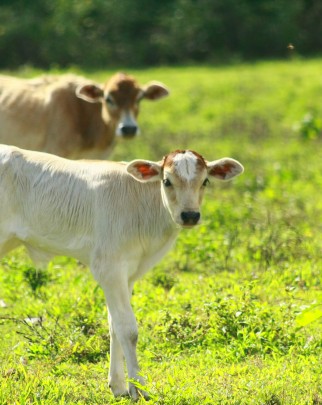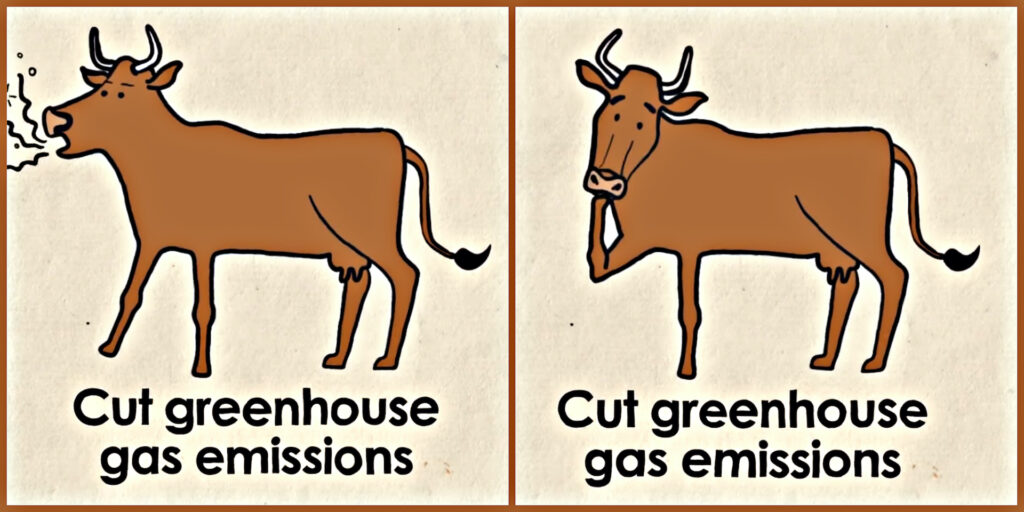The world population is predicted to reach 9.7 billion by 2050. What does this mean from a nutritional perspective? Experts say this increase in population will lead to a 70%”80% increase in demand for animal-based food – this will place significant pressure on our planet’s natural resources.
Animal-based proteins are highly nutritious and play a key role in a balanced, healthy diet. Its consumption is also central to many cultures. However, if animal food production continues with its current methods of production, its emissions will account for 81% of humanity’s emissions budget, which is obviously unsustainable in the long term.
Innovative science-based solutions will be needed to help provide enough animal protein for a growing population while, at the same time, reducing the environmental costs of farming.

DSM’s We Make It Possible initiative addresses these challenges and will create value across three dimensions simultaneously: namely People, Planet and Profit. The mission of We Make It Possible is to lead a robust and achievable transformation worldwide in sustainable animal protein production, and to accelerate solutions that will foster a brighter future.
This initiative reflects our commitment to not only be part of the value chain, but to actually be a change agent – to thinking ahead and generating ideas and new ways of working. It demonstrates our vision – how we see the future of the farming industry and the role we want to play – and also supports the development of a sustainable global animal production industry.
As an example, one core tenet of We Make It Possible is to meet the increasing demand for animal protein as a result of our growing population. Over time, this need for ever-increasing quantities of animal protein will place tremendous pressure on our planet’s finite natural resources, leading to significant environmental strain. The time to change strategy is now – and it is not an impossible challenge.
DSM is centred on a purpose-led strategy driven by sustainable solutions for a better world. We believe that the livestock industry can transform itself from within to be part of the solution to the world’s sustainability challenge.
Aligned with the UN’s Sustainable Development Goals 2, 3, 12, 13, and 14, the initiative is driven by six sustainability platforms that will help address the major challenges facing the animal farming industry:
1. Improving the lifetime performance of farm animals at every stage of life
-
- Optimising the health of livestock is essential for improving animal performance and overall production efficiency, thereby helping to drive more sustainable animal production.
- Health issues reduce the performance of an animal over its lifetime, decreasing livestock production efficiency by as much as 33%. At DSM, we design species-specific smart nutritional plans that improve animal health, welfare and overall performance across the lifetime of the animal. For example, in cows our nutritional solutions help optimise skeletal development and health, nutrient utilisation and fertility, while combating ketosis, mastitis and lameness.
2. Improving the quality of food (i.e., meat, milk, fish, eggs), while reducing food loss and waste
-
- Approximately one-third of food derived from animal protein production is currently lost or wasted.
- By focusing on Optimum Vitamin Nutritionâ„¢ (OVN)â„¢, we can help reduce food loss and waste in animal protein value chains.
- We apply our unique understanding of vitamin D to layer nutrition to help hens lay robust and nutritious eggs, leading to significantly less egg breakages and subsequent food loss.
- Vitamin E is one of nature’s most powerful antioxidants and is essential for maintaining the integrity of muscle cells. Feeding optimal levels of vitamin E during the growing phase of animal production ensures that sufficient vitamin E is deposited in the muscle cell membranes, thereby improving the quality of the meat.
3. Reducing emissions from livestock 
-
- Animal farming accounts for 14.5% of all human-derived GHG emissions. This figure needs to be rapidly reduced to help limit the rise in global temperatures to 1.5 ºC by 2050.
- Improving feed digestibility and reducing feed conversion ratio is one of the major levers of sustainable animal production. It lessens the strain on land use, and reduces the indirect GHG emissions associated with animal production.
- Feed enzymes improve feed digestibility. By unlocking the nutrient potential of feed raw materials, we can get more out of less feed.
4. Making efficient use of natural resources
-
- Growth in animal production places tremendous demands on the world’s natural resources.
- Feed enzymes can offer tangible, measurable means to achieve these objectives.
- Improve feed ingredient digestibility. They substantially reduce the amount of feed needed to meet the world’s growing demand for animal protein. They also enable the greater use of alternative, local feed ingredients and byproducts, thereby reducing our reliance on soy and other major crops.
5. Reducing the reliance on marine resources
-
- We help reduce the aquaculture industry’s reliance on marine resources through our Veramaris ® technology and nutritional solutions that allow alternative raw material use in aquaculture diets. We are cultivating marine algae that naturally produce omega 3, so we can help reduce the reliance on wild fish stocks and enable the aquaculture industry to grow.
6. Helping tackle antimicrobial resistance
-
- We are focusing on developing novel nutritional solutions which increase the resilience of animals to stress and pathogens, thereby limiting antibiotic use. Essentially, we need to replace antibiotic growth promoters and switch to antibiotic-free diets.
- Innovative feed additives such as eubiotics and enzymes along with optimum vitamin nutrition are proven nutritional solutions that improve gut health, robustness and growth of farm animals.

” Rajeev Murthy is Head – Animal Nutrition and Health, DSM India/South Asia

